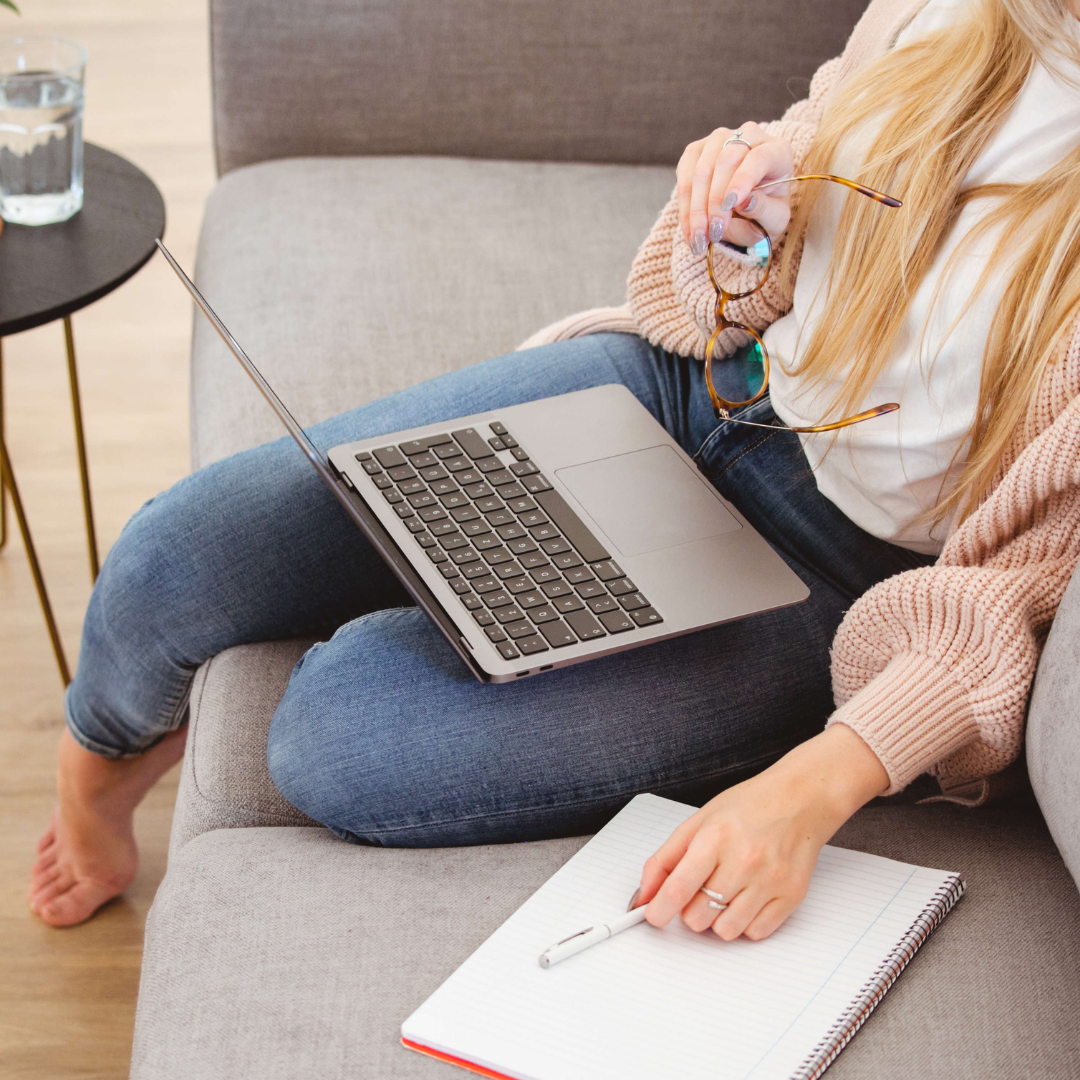
In a world that often emphasises the value of social connections, there’s an important distinction to be made between being alone and feeling lonely.
Many people associate solitude with a sense of isolation or sadness, but the truth is that being alone can be a fulfilling and rejuvenating experience. 😊
In this blog post, I will explore the nuances of being alone versus feeling lonely, understanding the importance of solitude, and embracing the positive aspects of both states.
Let’s get to it. 💕
The Difference Between Being Alone and Feeling Lonely:
Being Alone:
Being alone is a state of physical solitude, where you find yourself without the company of others. It can occur by choice or as a natural consequence of circumstances. Spending time alone provides an opportunity for self-reflection, relaxation, and personal growth.
It allows you to engage in activities that bring you joy, pursue hobbies, or simply enjoy a moment of peace. Being alone can be a deliberate choice, a time to recharge and connect with oneself. 🥰
Feeling Lonely:
Loneliness, on the other hand, is an emotional state that arises from a perceived lack of meaningful connections. It’s possible to feel lonely even in a crowded room if the connections are superficial or unfulfilling.
Loneliness is often characterised by a sense of emptiness, isolation, or a longing for deeper human connections. It’s a complex emotional experience that can impact mental and physical well-being. 😟
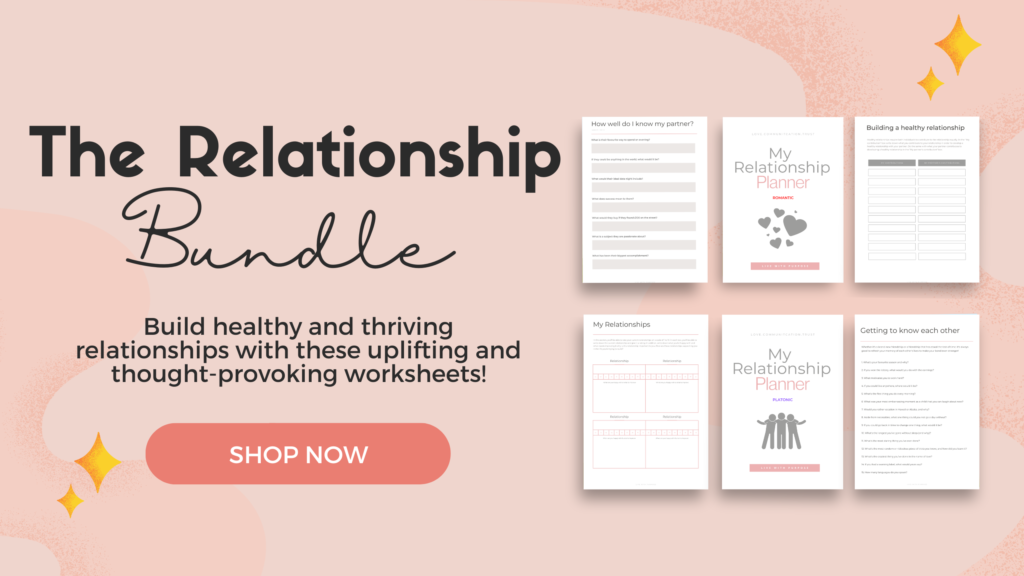
Embracing the Positive Aspects of Being Alone:
1. Self-Discovery:
Being alone provides an opportunity for self-discovery. It allows you to explore your thoughts, feelings, and interests without external influences. Use this time to reflect on your goals, values, and aspirations. Self-discovery is a crucial aspect of personal growth and can lead to a deeper understanding of oneself.
2. Independence:
Embracing solitude fosters independence. When you’re comfortable being alone, you become more self-reliant and less reliant on others for your happiness. This independence can empower you to make decisions based on your own needs and preferences, leading to a more authentic and fulfilling life. 🥰
3. Creativity:
Solitude often sparks creativity. When you’re alone with your thoughts, you have the mental space to generate new ideas, think critically, and engage in creative pursuits (yaay). Many artists, writers, and innovators find inspiration in moments of solitude, leading to the creation of meaningful and impactful work. 🎨
4. Rest and Rejuvenation:
Being alone allows for rest and rejuvenation. In a world filled with constant stimuli, taking time for solitude can be a form of self-care. It provides an opportunity to relax, recharge, and focus on activities that bring you peace and joy, contributing to overall well-being.
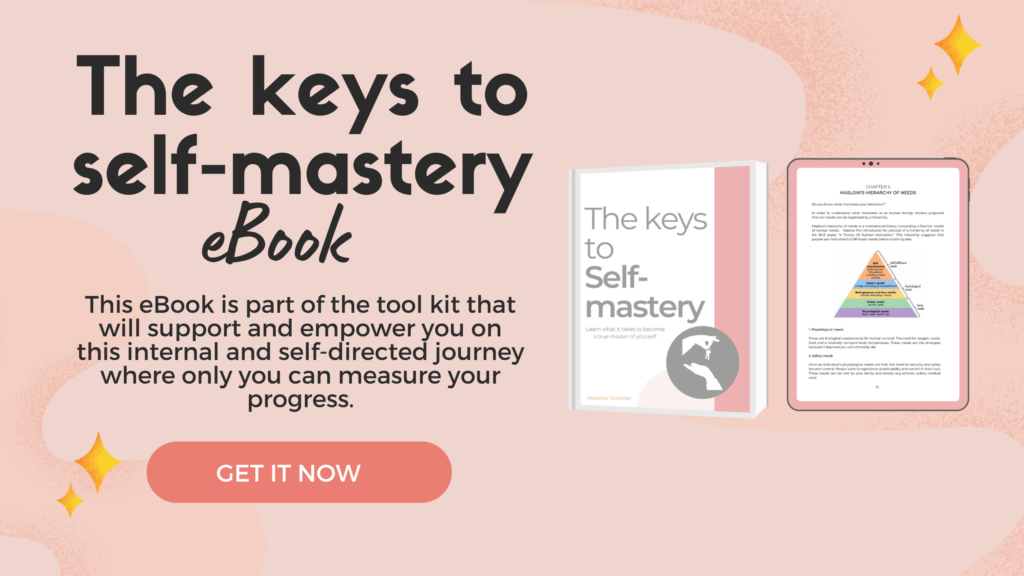
Addressing the Challenges of Feeling Lonely:
1. Cultivating Meaningful Connections:
If loneliness arises from a lack of meaningful connections, focus on cultivating relationships that nourish your soul. Seek out individuals who share your values and interests. Join clubs, organisations, or communities where you can meet like-minded people. Focus on getting yourself out there. Quality connections are often more fulfilling than a large social circle. 🫂
2. Volunteering and Giving Back:
Engaging in volunteer work or contributing to your community can alleviate feelings of loneliness. By helping others, you not only make a positive impact on the world but also connect with individuals who share a common purpose. Volunteering provides a sense of belonging and fulfillment.
3. Seeking Professional Support:
If loneliness becomes a persistent and overwhelming emotion, maybe consider seeking professional support. A therapist or counselor can provide guidance and a safe space to explore the root causes of loneliness. Addressing these issues with professional help can lead to a more fulfilling and connected life. 🫶
Finding Balance:
The key to a fulfilling life lies in finding a balance between being alone and fostering meaningful connections. Embrace solitude as a time for self-discovery, creativity, and rejuvenation. At the same time, actively cultivate relationships that bring joy and fulfillment. Recognise that both states are essential for a well-rounded and satisfying life. 💕
Conclusion
Being alone and feeling lonely are two distinct experiences, each with its own set of opportunities and challenges. Embracing solitude allows for self-discovery, independence, creativity, and rest. However, if loneliness creeps in, it’s crucial to address it by cultivating meaningful connections, volunteering, or seeking professional support. You are not alone. ❤️
Understanding the nuances between being alone and feeling lonely empowers you to navigate both states with intention and purpose. Ultimately, finding a balance between solitude and social connections contributes to a rich and fulfilling life. Embrace the positive aspects of being alone, foster meaningful connections, and savor the journey of self-discovery in this beautiful dance between solitude and companionship.
Pin this post for a reminder 📌 👇
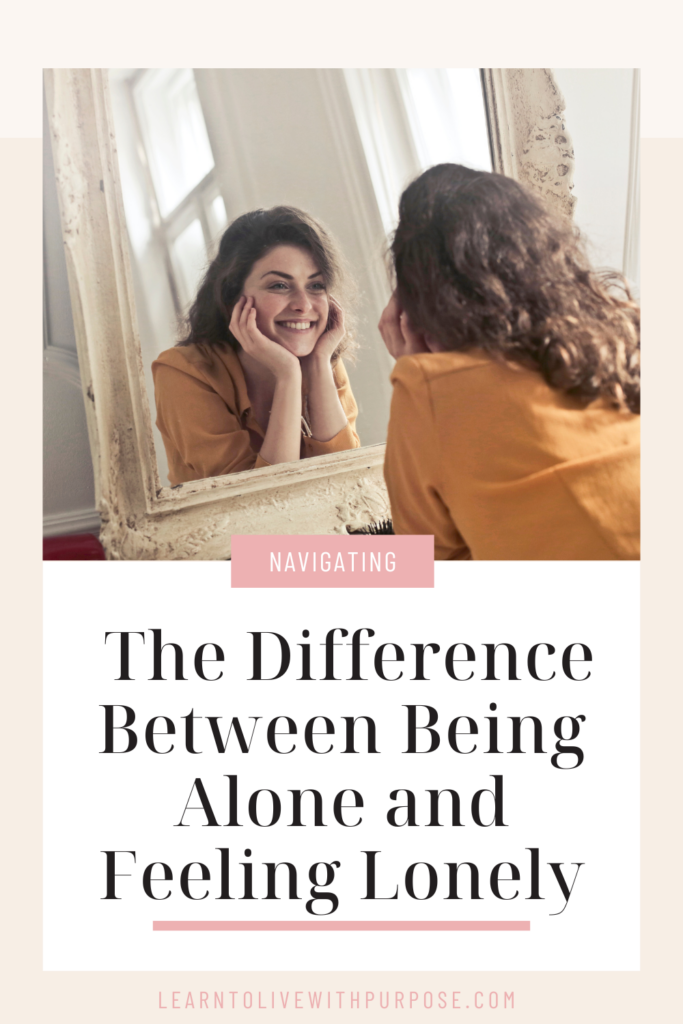
Related Blogs
Things to Say “No” to for you to Live a Happier Life
How to Stop Settling For Less Than You Deserve
How to Become the Best Version of Yourself: A Guide For 20-Somethings
Do you ever find yourself lying awake at night, thinking about the day’s events or worries? Do you feel like your mind is on an endless loop of anxious thoughts? 😟
If so, you’re not alone. Many people struggle with overthinking at night, and it can be incredibly disruptive to your quality of sleep. This in turn makes you feel groggy and unproductive.
In this blog post, we will explore what overthinking is, the consequences of overthinking, and discuss some tips on how to stop overthinking at night. We will also look at some strategies to practice during the day to reduce overthinking at night, as well as how to create a bedtime routine to help you stop overthinking. 😌
Finally, we will talk about how to find support and guidance if needed.
So, if you’re ready to take back control of your mind and stop overthinking at night, let’s get started! 💕
What is Overthinking?
Overthinking is a common phenomenon in which a person becomes caught in a loop of anxious and negative thoughts.
It typically occurs when an individual is feeling overwhelmed or stressed, and it can be debilitating. People often become so absorbed in their thoughts that they have difficulty focusing on anything else. Ugh. 😒
Overthinking can involve ruminating on the past, worrying about the future, or analysing a current situation. It may involve catastrophising (fearing the worst-case scenario), or obsessing over details that aren’t really relevant. It often revolves around themes of self-doubt, guilt, shame, and insecurity.
When someone is overthinking, they can become trapped in a cycle of negative thoughts. This can lead to difficulty sleeping, increased stress, and even depression.
It’s important to recognise when your thoughts are becoming intrusive and unproductive and take steps to stop them. 🙂

The Consequences of Overthinking
As mentioned earlier, overthinking can have some serious consequences on your mental and physical health. Some of the most common consequences of overthinking include:
- Difficulty sleeping: Overthinking can lead to difficulty sleeping, as it can be difficult to switch off your thoughts and relax. 😴
- Increased stress: The more we overthink, the more stressed and anxious we become. This can lead to physical symptoms such as headaches, muscle tension, and fatigue.
- Poor concentration: When we are stuck in a cycle of negative thoughts, it can be difficult to focus on anything else. This can affect our performance at work or school and lead to further stress. 😬
- Depression: Overthinking is a common symptom of depression, and it can lead to further depression if not addressed. Try not to let it get that far.
These are just a few of the consequences of overthinking. It’s important to recognise when your thoughts are becoming unproductive and take steps to stop them.
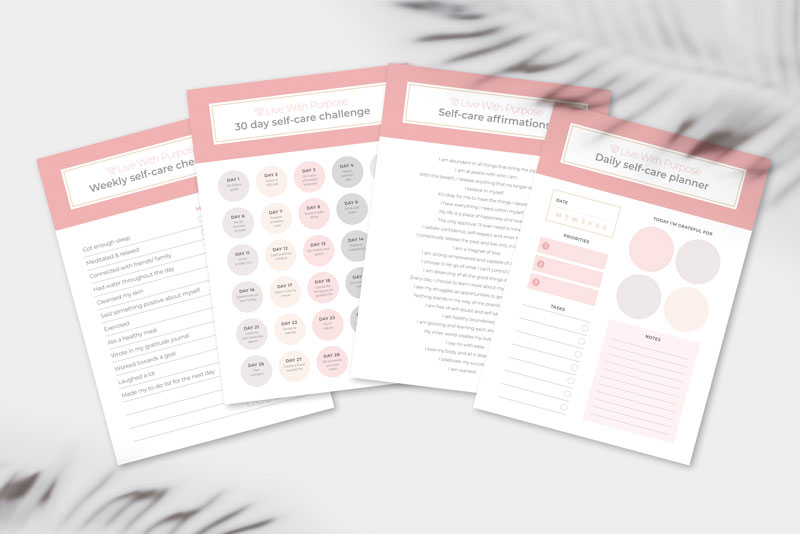
GRAB YOURSELF OUR FREE SELF-CARE BUNDLE!
It’s time to take some time out for yourself love! Check out this four-page bundle of self-care goodness that you can use to relax, refresh and rejuvenate. You deserve it sis.
Pop your info in and download your bundle now ❤️
Tips for Stopping Overthinking at Night
If you’re struggling with overthinking at night, there are some strategies you can use to help you break the cycle of negative thoughts. Here are some tips:
- Acknowledge the thought: Acknowledge the thought and then let it go. Don’t try to push it away or suppress it, as this can actually make it worse.
- Practice mindfulness: Mindfulness is a great way to become more aware of your thoughts and learn to accept them without judgment.
- Take deep breaths: Taking deep breaths can help to calm your mind and body, and can help to reduce racing thoughts.
- Write it down: Writing down your thoughts can help to get them out of your head and onto paper. This can help to make them more manageable.
- Distract yourself: Find something else to focus on, such as a book, a movie, or a TV show. 📺
- Talk to someone: Talking to a friend or a family member can help to take your mind off of your thoughts and can help you to feel more supported.
These are just a few tips to help you stop overthinking at night. Remember that it takes practice and patience, but it is possible to take back control of your mind. 🧠

How to Change Your Thought Patterns
Changing your thought patterns is an important step in stopping overthinking at night. It involves becoming aware of your thoughts and actively challenging them, it requires you to be present in the moment so it would be best to find some alone time in a quiet space. 😊
Here are some strategies to help you do this:
- Challenge your thoughts: Become aware of your thoughts and challenge their accuracy. Ask yourself if the thought is factually true or if it is just an assumption.
- Replace the thought: Replace unhelpful thoughts with more positive ones. For example, if you are worrying about a future event, replace the thought with something more positive, such as “I can handle this and nothing will get in my way.” 😌
- Reframe the thought: Reframe unhelpful thoughts in a more positive way. For example, instead of thinking “I’m a failure,” think “I’m still learning and growing.”
- Practice gratitude: Practicing gratitude can help to shift your focus from worrying thoughts to more positive ones.
- Focus on the present: Be mindful of the present moment and focus on the here and now. This can help to reduce worrying about the future and not stay fixated on it.
By practicing these strategies, you can start to shift your thought patterns and reduce overthinking at night. 🌙
Strategies to Practice During the Day to Reduce Overthinking at Night
In addition to changing your thought patterns, there are some strategies you can practice during the day to reduce overthinking at night. Here are some ideas:
- Practice self-care: Make time for activities that make you feel good, such as exercise, reading, or spending time with friends. P.s. Check out our freebies page to grab your free self-care bundle!
- Simplify your day: Break down tasks into smaller, more manageable chunks. This can help to reduce stress and keep your mind from racing.
- Set boundaries: Set clear boundaries with yourself and others to create a sense of balance in your life. ⚖️
- Get organised: Create a daily plan and set achievable goals. This can help to reduce stress and keep your mind focused.
- Practice relaxation techniques: Try relaxation techniques such as deep breathing, meditation, or yoga to reduce stress and anxiety.
By incorporating these strategies into your daily life, you can reduce overthinking at night and improve your quality of sleep. 😴

How to Create a Bedtime Routine to Stop Overthinking
Creating a bedtime routine can help to reduce overthinking at night and improve your quality of sleep. Here are some tips for creating a bedtime routine:
- Wind down: Start to wind down an hour before bedtime by doing activities that relax you, such as reading or listening to calming music. 🎶
- Disconnect: Avoid using screens an hour before bedtime, as the blue light can disrupt your sleep cycle.
- Set a schedule: Go to bed and wake up at the same time each day to help regulate your sleep cycle. Social media will still be there when you wake up. Pick a schedule and stick to it! 📅
- Avoid caffeine and alcohol: Avoid caffeine and alcohol before bedtime, as they can disrupt your sleep.
- Create a calming environment: Create a calming environment in your bedroom by keeping it dark, quiet and cute. 🥰
- Journal: Journaling can be a great way to get your thoughts out on paper and reduce overthinking.
By implementing these strategies, you can create a bedtime routine that will help you to reduce overthinking and get a better night’s sleep.
How to Find Support and Guidance
If you’re struggling with overthinking, it can be helpful to reach out for support and guidance. Here are some ideas:
- Talk to a friend or family member: Talking to a friend or family member can help to take your mind off of your thoughts and can help you to feel more supported and recognise that you are not alone.
- Seek professional help: Talking to a mental health professional can help to identify the root cause of your overthinking and provide you with strategies to manage it. 👩⚕️
- Join a support group: Joining a support group can provide you with a safe space to talk about your struggles and receive support from others who are going through similar experiences.
- Read self-help books: Reading self-help books can provide you with useful strategies to manage your thoughts and reduce overthinking. 📖
- Seek out online resources: There are many online resources available, such as blogs, podcasts, and websites, which can provide you with support and guidance.
Finding support and guidance can help you to reduce overthinking and take back control of your mind. 🧠

Conclusion
Overthinking can be incredibly disruptive to your quality of sleep. It can lead to difficulty sleeping, increased stress, and even depression. It’s important to realise when your thoughts are becoming unproductive and take steps to stop them. ✋
In this blog, we explored what overthinking is, the consequences of overthinking, and discussed some tips on how to stop overthinking at night.
We also looked at some strategies to practice during the day to reduce overthinking at night, as well as how to create a bedtime routine to help you stop overthinking. Finally, we talked about how to find support and guidance if needed. 🤗
If you’re struggling with overthinking at night, remember that it takes practice and patience, but it is possible to take back control of your mind. Try implementing the strategies discussed in this blog and find support if needed. You can do this!
Take back control of your mind and stop overthinking at night – it is possible! 💕
Pin this post for a reminder 📌 👇
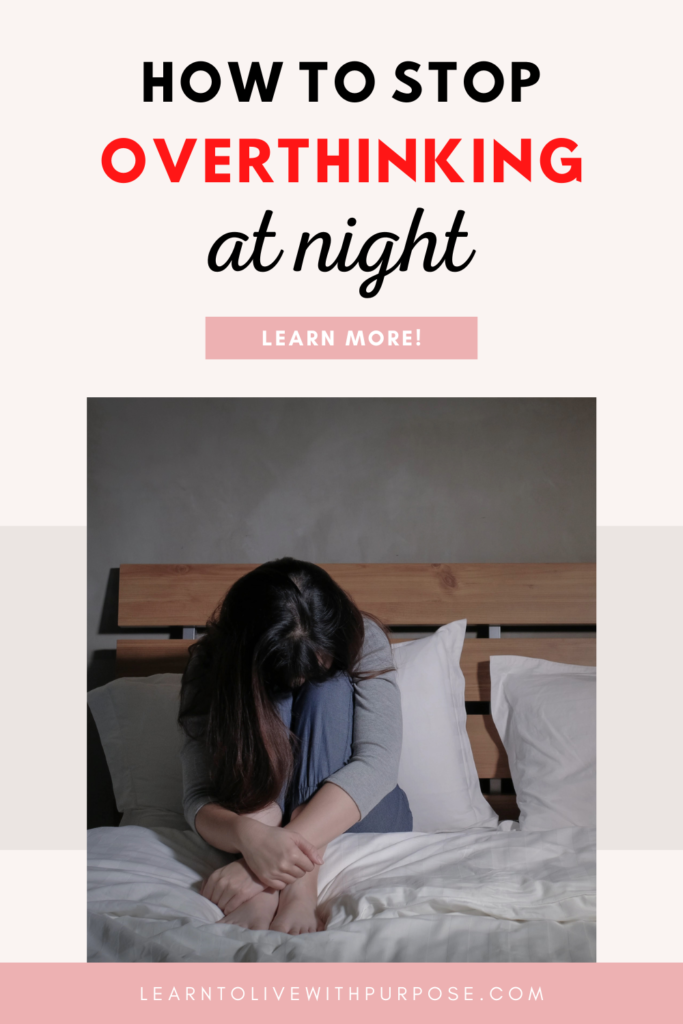
Related Blogs
Simple Ways to Practice Self-Care
Negative personal comments can be difficult to deal with as they can be hurtful and can undermine your confidence and self-esteem. 😞
Whether they come from family, friends, or strangers, it can be hard to know how to respond in a way that is respectful and effective. In this blog post, we’ll discuss how to respond to negative personal comments with grace and strength.
We’ll discuss the different reasons why people make negative personal comments, the benefits of responding with grace and strength, strategies for responding to negative personal comments, tips for responding to negative personal comments, how to respond to negative personal comments with empathy, how to deal with negative personal comments from family and friends, how to respond to negative personal comments in a professional setting, and strategies for dealing with online harassment.
Reasons Why People Make Negative Personal Comments
There are a few different reasons why people make negative personal comments. One of the most common reasons is to intentionally hurt someone else. 😕
This can happen in personal relationships, in the workplace, and online. In these cases, the person making the comment is likely trying to get a reaction out of the person they’re targeting.
Another reason people make negative personal comments is to make themselves feel better. They might be feeling insecure or threatened in some way, and they might use negative personal comments to make themselves feel more powerful.
Also, people might make negative personal comments out of ignorance or lack of understanding. In these cases, the person making the comment might not understand the implications of what they’re saying or how it might make the other person feel. 🤔
Regardless, the main takeaway from this is to not take it personally. Easier said than done, I know. But it’s taking it personally that allows other people’s negative comments to get under your skin and make you act against your character.
Know who you are and what you stand for. 😌
QUIZ: What does success mean to you? Take the quiz now!

The Benefits of Responding with Grace and Strength
Responding to negative personal comments with grace and strength has many benefits. It can help you maintain your composure in difficult situations, and it can also help you build your confidence and maintain boundaries. 😊
When you respond to negative comments with grace and strength, you’re demonstrating to yourself and others that you’re capable of handling difficult situations and that you’re not going to let negative comments affect your self-esteem, you’re not going to allow it to affect your day and you’re not going to allow it to affect your mood for more than 10 seconds. 🙅♀️
Responding with grace and strength also shows the other person that you’re not going to be easily intimidated or manipulated. This can be especially important in situations where the person making the negative comments is trying to get a reaction out of you.
Don’t let them win.
Strategies for Responding to Negative Personal Comments
When it comes to responding to negative personal comments, there are a few strategies you can use.
First, it’s important to remember to stay calm and not let the comment get to you. 🤷♀️
It’s easy to get angry and defensive, but it’s important to remember that responding in an angry or aggressive way will only make the situation worse.
Another strategy is to remain polite and respectful. Even if the other person is being rude or disrespectful, try to respond in a polite and respectful manner, then leave the convo expeditiously. 🏃♀️
This will show the other person that their comments are not having the desired effect and that you’re not going to be easily intimidated.
Finally, it can be helpful to try to understand the other person’s perspective. This can be difficult, especially if the comment was deliberately hurtful, but it can help you to empathise with the other person and find common ground.

Tips for Responding to Negative Personal Comments
There are a few tips you can keep in mind when responding to negative comments.
First, it’s important to remember that you don’t have to respond to every comment. If the comment is particularly hurtful or offensive, it might be best to ignore it and move on. 😒
It can also be helpful to take some time to think about your response. This will help you to remain calm and ensure that your response is thoughtful and appropriate to the situation.
Finally, it’s important to remember that you don’t have to take the comment personally as mentioned above.
Negative comments can be hurtful, but it’s important to remember that they don’t reflect who you are or how others feel about you. 🙂
How to Respond to Negative Personal Comments with Empathy
In some situations, it can be helpful to respond to negative personal comments with empathy.
This can help to diffuse the tension and show the other person that you’re trying to understand their perspective. It can also help to build a bridge of understanding between you and the other person.
When responding to negative personal comments with empathy, it’s important to try to put yourself in the other person’s shoes and understand their feelings. 🤔
In order to do this, active listening is crucial. Ask them “What’s wrong/Why are you talking to me this way?” If they’re not ready to talk then that’s fine but take some time out and distance yourself for a bit until they’re ready to talk. 🤷♀️
It’s also important to remember to remain calm and not let the comment(s) get to you and focus on the positive aspects of the situation (if there are any) and look for ways to move forward.

Handling Negative Personal Comments from Family and Friends
Negative personal comments from family and friends can be particularly difficult to deal with. It can be hard to know how to respond in a way that is respectful and effective.
One strategy for dealing with negative comments from family and friends is to try to talk to them about their concerns. It’s important to remain calm and try to understand their perspective. This can help to diffuse the tension and show them that you’re trying to understand their feelings. 👂
It can also be helpful to set boundaries with family and friends.
Let them know that you don’t appreciate those comments and that you expect them to treat you with respect. This can help show them that their comments are unacceptable and that you’re not going to tolerate them. 🙅♀️
Being family doesn’t give anyone the right to be disrespectful towards you. Set your boundaries and stand your ground.
Don’t allow anyone to mess with you. 👈

How to Respond to Negative Personal Comments in a Professional Setting
Negative personal comments can also occur in professional settings. It’s important to remember that you have the right to be treated with respect in the workplace and that you don’t have to tolerate negativity.
When responding to negative comments in a professional setting, it’s important to remain calm and professional as your job is potentially on the line. 😬
It can also be helpful to talk to a supervisor or human resources representative if the comments are particularly offensive or inappropriate.
Finally, it can be helpful to document any incidents of negative personal comments in the workplace. This will help you to build a case if the situation escalates and you need to take further action. 🙃
Strategies for Dealing with Online Harassment
Online harassment is a serious issue and it’s important to know how to respond to these comments online.
One strategy for dealing with online harassment is to block or ignore the person making the comments. This will help to prevent further harassment and demonstrate to the other person that their comments are not acceptable. 😒
It can also be helpful to report the comments to the platform where they were made. Most social media platforms have policies in place to deal with abusive or offensive comments. You don’t have to put up with that crap.
Finally, it’s important to remember to take care of yourself. Online harassment can be traumatic and it’s important to take the time to address your emotional needs. 🛀
Conclusion
Negative personal comments can be difficult to deal with, but it’s important to remember that you can respond to them without acting out of character. 🥲
There are a few different strategies you can use, such as staying calm, remaining polite and respectful, and trying to understand the other person’s perspective. It’s also important to remember to take care of yourself and to seek help if you need it.
If you’re dealing with negative personal comments, remember that you don’t have to tolerate them. You have the right to be treated with respect and you can respond to negative comments with grace and strength. 💪
Pin this post for a reminder 📌 👇
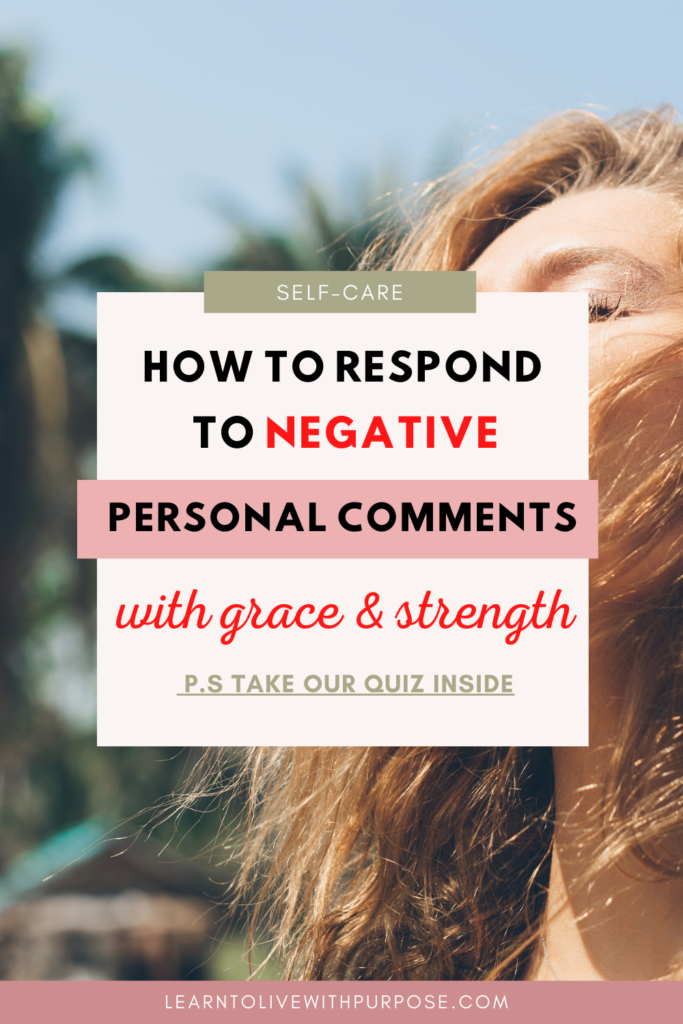
Related Blogs
How to Stop Comparing Yourself to Others
Why Intentional Living is The Best Thing You Can Do For Yourself
We all have our moments of self-doubt. It’s only natural. But that doesn’t mean you have to stay in that space.
Accepting yourself is a journey. It takes time and effort, but nevertheless, it is possible. With the right tools and guidance, you can learn how to accept yourself and embrace who you are. 🥰
This step-by-step guide on how to accept yourself provides a helpful roadmap to help you on your journey.
By following the steps outlined in this guide, you can learn how to accept yourself, dissolve negative thoughts, connect with your inner self, practice self-care, surround yourself with positive people, find your purpose, learn from your mistakes, celebrate your achievements, and live in the moment. 😌
So take the first step and start your journey today. It’s never too late to learn how to accept yourself.
You can make the conscious choice to accept yourself and embrace who you are, right here, right now. It’s not easy, but it is definitely possible.
What is Self-Acceptance?
Self-acceptance is the key to living a fulfilled life. It’s the practice of understanding, honoring, and embracing yourself for who you are.
It’s about embracing your strengths and weaknesses, successes and failures, and understanding that you are enough just as you are. ❤️
It’s about being kind to yourself and recognising that you are worthy of love and respect – no matter what.
At its core, self-acceptance is about knowing who you are and being okay with it. It’s about having an appreciation for yourself, your body, and your life. It’s about being comfortable in your own skin and loving yourself for who you are.

Dissolving Negative Thoughts
One of the first steps to accepting yourself is to dissolve any negative thoughts that you may have.
Negative thoughts can be destructive. They can lead to feelings of inferiority and a lack of self-esteem. But it doesn’t have to be that way.
Start by recognising and challenging the negative thoughts that you have. Ask yourself if these thoughts are realistic or even make sense. 🤔
Acknowledge that these thoughts are not helpful and don’t beat yourself up over them. Instead, focus on the positive aspects of yourself.
Remember, there’s a difference between constructive criticism and negative thoughts.
Constructive criticism ✔️
Negative thoughts 🗙
Another way to dissolve negative thoughts is to practice self-compassion.
Self-compassion is the practice of being kind and understanding toward yourself. It’s about recognising your humanity and being gentle with yourself. It’s about recognising that everyone makes mistakes and that being imperfect is okay.
Finally, practice gratitude.
Gratitude is the practice of being thankful for what you have. It can help to put things in perspective and to recognise the positive aspects of your life.
Start by focusing on the small things in life and expressing gratitude for them. 🤗
Connecting with Your Inner Self
Connecting with your inner self is an important part of accepting yourself. It’s about getting to know who you are and understanding your values and beliefs.
It’s about getting in touch with your true self and understanding what makes you unique.
The best way to connect with your inner self is to take some time to be alone. 🤷♀️
Take some time to sit with yourself and be present in the moment. Spend some time reflecting on who you are and what you value. Ask yourself questions about your beliefs, values, and dreams.
You can also practice meditation. 🧘♀️
Meditation is a great way to connect with your inner self. It’s a practice of focusing on the present moment and being mindful of your thoughts and feelings. It’s a practice of being in tune with yourself and your surroundings.
Finally, journaling can be a great way to connect with your inner self. 😊
Writing down your thoughts and feelings can help to provide clarity and insight into who you are and what you value. It can also help to provide an outlet for any negative emotions.
Practicing Self-Care
Practicing self-care is a vital part of accepting yourself. It’s about taking care of your physical, mental, and emotional well-being. It’s about being mindful of your health and doing what you can to stay healthy. 🥗
Start by focusing on your physical health. Make sure to get enough sleep, eat nutritious foods, and get some exercise. These are all important for your physical and mental health.
Next, practice mindfulness. Mindfulness is the practice of being aware of your thoughts and feelings in the present moment. It can help to reduce stress and anxiety and can help to provide clarity and insight.
Finally, make time for yourself. I mean it. 🙂
Take some time to do something that you love and that makes you happy. It could be reading a book, taking a walk, or even just taking a few minutes to sit and relax. It’s important to make time for yourself and to do things that make you happy.
Surrounding Yourself with Positive People
Surrounding yourself with positive people is an important part of acceptance. It’s about surrounding yourself with people who support and accept you for who you are. It’s about finding people who will lift you up and help you to grow. 👨👩👧
Start by finding a positive support system. This could be friends, family, or even a mentor. These are people who will be there to support you and to help you to stay positive.
You can also join a support group or community. Find a group of people who have similar interests and values to you.
This could be a religious group, a sports team, or even a book club. Having a support system of people who understand you can be a great way to stay positive and stay on track.
Finally, be mindful of the people you surround yourself with. Make sure they are positive people who will lift you up and help you to grow, not make passive-aggressive remarks or give you unhelpful advice. 😒
Be mindful of the people who bring you down and don’t be afraid to distance yourself from them.

Finding Your Purpose
Finding your purpose is an important part of self-acceptance. It’s about understanding why you are here and what you want to do with your life. It’s about finding something that you are passionate about and pursuing it. 😃
Start by reflecting on your values and beliefs. What do you believe in? What are your core values? What do you want to do with your life?
These are all important questions that can help to provide clarity and insight into your purpose.
You can also practice visualisation. Visualisation is the practice of imagining your future and creating a mental picture of what you want to achieve. It’s a powerful tool that can help to provide clarity and focus. ➡️
Finally, take some time to explore. Take some time to explore your interests and discover what you are passionate about. Don’t be afraid to try new things and step outside of your comfort zone. You never know what you may find.
Check out my free How to live with purpose 4-week mini-course to find out more!
RELATED: How to live with purpose mini-course [FREE]
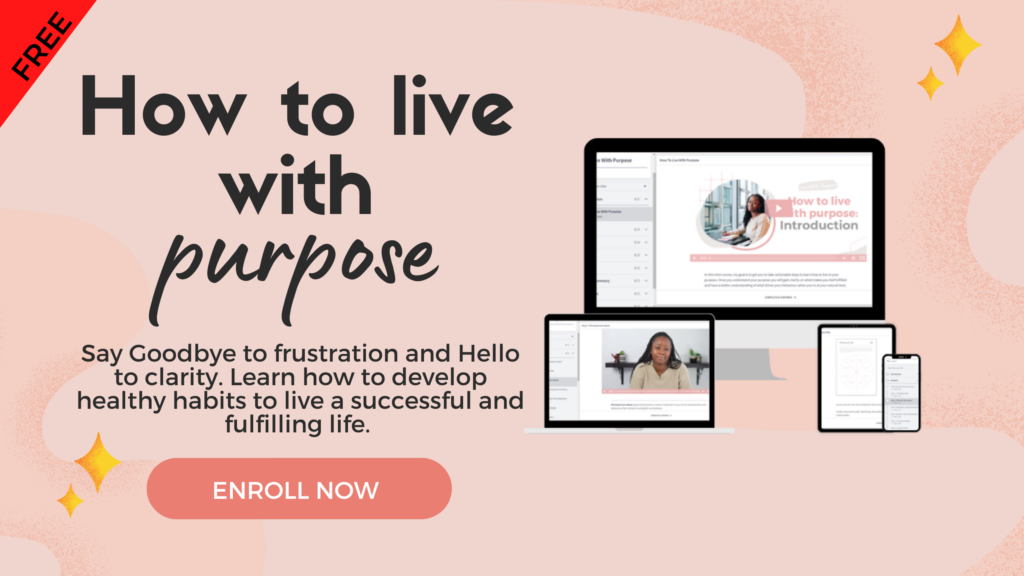
Learning from Your Mistakes
Learning from your mistakes is an important part of self-acceptance. It’s about understanding that mistakes are a part of life and that it’s okay to make them. It’s about learning from your mistakes and using them as an opportunity to grow. 🌱
It’s important to be honest with yourself and to acknowledge when you make a mistake. Don’t beat yourself up over it, but instead use it as an opportunity to learn and remind yourself that everyone makes them.
Next, take some time to reflect. Reflect on what you could have done differently and what you can learn from the experience.
Ask yourself how you can use this experience to become a better person. ❓
Finally, practice forgiveness. Forgiveness is the practice of letting go. It’s about understanding that mistakes happen and that it’s okay. It’s about accepting yourself and letting go of any negative feelings that you may have about yourself.
Celebrating Your Achievements
Celebrating your achievements is an important part of accepting yourself. It’s about realising the progress that you have made and taking the time to appreciate it.
It’s about recognizing your successes and being proud of them. 😌
Start by acknowledging your successes. Take some time to reflect on your accomplishments and celebrate them. Don’t be afraid to give yourself a pat on the back. You deserve it.
You should also practice gratitude. Gratitude is the practice of being thankful for what you have. It can help to put things in perspective and to recognize the positive aspects of your life.
Finally, take some time to reward yourself. Reward yourself for your hard work and achievements. Take some time to do something that you enjoy and that makes you happy. 😁

Living In The Moment
Living in the moment is an integral part of self-acceptance. It’s about understanding that life is fleeting and that it’s important to make the most of the present.
It’s about being mindful of your thoughts and feelings and living in the moment. Tomorrow isn’t promised, so stop worrying about it and focus on what’s happening in front of your eyes. 👁️👁️
Start by practicing mindfulness. Mindfulness is the practice of being aware of your thoughts and feelings in the present moment. It can help to reduce stress and anxiety and can help to provide clarity and insight.
Finally, take some time to enjoy life. Take some time to appreciate the beauty of the world and savor the moment. Don’t be afraid to take a break and appreciate life. ☀️
Embracing Who You Are
Embracing who you are is an essential part of self-acceptance. It’s about understanding, honouring, and embracing yourself for who you are.
It’s about recognising your strengths and weaknesses, successes and failures, and understanding that you are enough just as you are. ❤️
Start by dissolving any negative thoughts that you may have. Practice self-compassion and gratitude. Connect with your inner self and practice self-care.
Surround yourself with positive people and find your purpose. Learn from your mistakes and celebrate your achievements. Live in the moment and make the most of the present.

How to Accept Yourself
At its core, self-acceptance is about knowing who you are and being okay with it. It’s about having an appreciation for yourself, your body, and your life. It’s about being comfortable in your own skin and loving yourself for who you are.
So embrace who you are. You are enough. You are worthy of love and respect – no matter what.
If you’re looking for more guidance on how to accept yourself, check out my Personal Growth Bundle. It’s designed to help you learn how to embrace who you are and live an authentic and fulfilled life.
in this post for a reminder 📌 👇
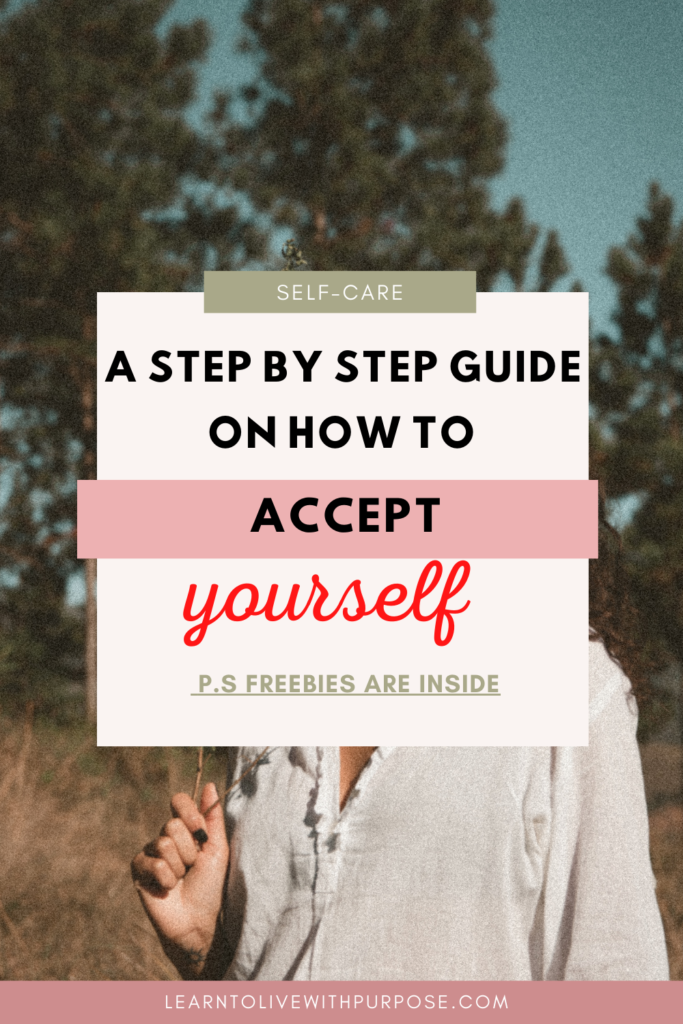
Related Blogs
The Truth About Automatic Negative Thoughts & How to Get Rid of Them For Good
We all have moments when we become defensive. It’s a normal response to feeling threatened or overwhelmed.
Unfortunately, being defensive can make it harder for us to connect with others, take constructive criticism, and move forward in life. Because at the end of the day… not everyone is going to be nice. 🤷♀️
If you’re looking for ways on how to stop being defensive, then you’ve come to the right place. In this blog post, I’ll go over what defensiveness is, why people become defensive, and strategies to help you move forward.
What is Defensiveness?
Defensiveness is a behavior or attitude that’s characterised by resistance to criticism or change.
It’s a form of self-protection that can arise in response to feeling threatened or overwhelmed. People who are defensive tend to become argumentative, deflect blame, or deny responsibility. 😟
Defensiveness is a natural response to feeling attacked or judged. It’s an attempt to protect yourself or your ideas, but it can have an adverse effect on relationships, communication, and overall quality of life.
Why Do People Become Defensive?
Defensiveness often arises in response to feeling judged, criticised, or attacked. It’s a way of protecting yourself from feeling vulnerable. It can also be a sign that you’re feeling insecure or overwhelmed.
You’re more likely to go from 0-100 in situations that make you feel uncomfortable. 😰
People become defensive for a variety of reasons, including low self-esteem, fear of failure, and negative self-talk. It can also be a sign of stress or anxiety.

Recognising Signs of Defensiveness
It’s important to recognise signs of defensiveness in yourself and others so you can take steps to address it. Here are some common signs of defensiveness:
- Avoidance or denial
- Argumentative behavior
- Blaming others
- Denying responsibility
- Defensive body language
- Deflecting criticism
- Interrupting conversations
- Making excuses
- Overreacting
- Taking criticism personally
If you recognize these signs in yourself, it’s important to take a step back and analyse why you’re feeling defensive. 🤔
Remember it’s a natural defense but it’s your responsibility to realise it and do something about it. Don’t allow it to destroy your relationships.
Strategies for Overcoming Defensiveness
If you’re looking for ways to stop being defensive, here are some strategies that can help:
- Acknowledge your feelings: Take some time to reflect on why you’re feeling defensive. Acknowledge your feelings without judgment or criticism.
- Take a time-out: If you’re feeling overwhelmed, take a break and come back to the conversation later. This can help you gain perspective and think more clearly.
- Practice self-compassion: Cut yourself some slack. Everyone makes mistakes and has moments of insecurity.
- Challenge your negative thoughts: Replace negative thoughts with more realistic ones. 😄
- Listen actively: Listen to what the other person is saying without judging or interrupting.
- Ask questions: Asking questions can help you better understand the other person’s point of view.
- Apologise: If you’ve said something that was hurtful or offensive, apologise and try to make amends.
- Be assertive: Speak up for yourself in a respectful way.
- Practice mindfulness: Take a few deep breaths and focus on the present moment.
Tips for Managing Difficult Conversations
If you’re having a difficult conversation, here are some tips to help you stay calm and collected:
- Take responsibility for your emotions: Don’t blame the other person for your feelings.
- Use “I” statements: Speak from your own perspective without attacking the other person.
- Maintain eye contact: Make eye contact to show that you’re actively listening.
- Avoid absolutes: Avoid using words like “always” or “never”. 🙅♀️
- Try to understand the other person’s perspective: Put yourself in the other person’s shoes and try to see things from their point of view.
- Speak calmly: Keep your voice level and speak slowly.
- Remain open-minded: Be open to new ideas and other perspectives.
Self-Care Practices to Reduce Defensiveness
Self-care is an important part of managing defensiveness. Here are some self-care practices that can help:
- Exercise: Exercise can help reduce stress and boost your mood.
- Meditation: Meditation can help you gain perspective and increase self-awareness.
- Journaling: Writing down your thoughts and feelings can help you process them in a healthy way.
- Get enough sleep: Lack of sleep can cause you to be more easily triggered. 😴
- Connect with nature: Go for a walk or spend some time in nature to reduce stress.
- Spend time with friends and family: Connecting with loved ones can help you feel more supported and less alone.

How to Face Criticism Without Becoming Defensive
No one likes to be criticised, but it’s an inevitable part of life. Here are some tips for facing criticism without becoming defensive:
- Listen without judgment: Listen to what the other person is saying without judging or interrupting.
- Ask clarifying questions: Ask questions to better understand the other person’s point of view.
- Validate their feelings: Acknowledge and validate their feelings without taking it personally.
- Focus on solutions: Try to find a solution that works for both of you.
- Take responsibility: Don’t blame the other person or make excuses. Take responsibility for your actions.
- Learn from your mistakes: Use criticism as an opportunity to learn and grow. 🪴
How to Be Assertive Without Being Defensive
Being assertive can help you express your needs and opinions in a respectful way. Here are some tips for being assertive without being defensive:
- Use “I” statements: Speak from your own perspective without attacking the other person.
- Be direct: Be honest and direct when expressing your opinions or feelings.
- Stay calm: Take a few deep breaths and focus on staying calm and centered. 😮💨
- Be specific: Be clear and specific when expressing your needs.
- Acknowledge the other person’s perspective: Show that you’re listening and understanding the other person’s point of view.
- Respect boundaries: Respect the other person’s boundaries and opinions.

How to Practice Active Listening
Active listening is an important skill to have when it comes to managing defensiveness. Here are some tips for practicing active listening:
- Keep an open mind: Be open to different perspectives and opinions.
- Listen without judgment: Listen to what the other person is saying without judging or interrupting.
- Ask questions: Ask clarifying questions to better understand their point of view.
- Reflect back: Reflect back on what the other person is saying to show that you’re listening.
- Don’t interrupt: Let the other person finish before speaking. 👂
- Respect boundaries: Respect the other person’s boundaries and opinions.
How to Listen Without Being Defensive
Listening without being defensive is an important part of having healthy relationships. Here are some tips for listening without being defensive:
- Take a step back: Take a few deep breaths and focus on staying calm and centered.
- Acknowledge your feelings: Take some time to reflect on why you’re feeling defensive. Acknowledge your feelings without judgment or criticism. 😌
- Listen without judgment: Listen to what the other person is saying without judging or interrupting.
- Ask questions: Ask clarifying questions to better understand the other person’s point of view.
- Validate their feelings: Acknowledge and validate their feelings without taking it personally.
- Focus on solutions: Try to find a solution that works for both of you.

Re-Routing Unhelpful Thoughts
If you’re struggling with defensiveness, it’s important to re-route your unhelpful thoughts. Here are some tips for re-routing unhelpful thoughts:
- Challenge your negative thoughts: Replace negative thoughts with more realistic ones. 💭
- Reframe your mindset: Reframe your mindset by focusing on the positive.
- Let go of perfectionism: Don’t expect perfection from yourself or others.
- Practice gratitude: Focus on what you’re grateful for to gain perspective.
- Replace negative self-talk: Replace negative self-talk with positive affirmations.
- Speak kindly to yourself: Treat yourself with kindness and compassion.
How to Stop Being Defensive – Conclusion
Defensiveness is a natural response to feeling threatened or overwhelmed, but it can cause problems in relationships and communication. If you’re looking for ways to stop being defensive, the strategies outlined in this blog post can help. 😃
Remember to be kind to yourself and practice self-care. It’s also important to take responsibility for your emotions and practice active listening. With some practice and patience, you can learn how to manage defensiveness and move forward in life.
If you’re looking for more tips on managing defensiveness, feel free to reach out. I’m here to help. 💕
Pin this post for a reminder 📌 👇
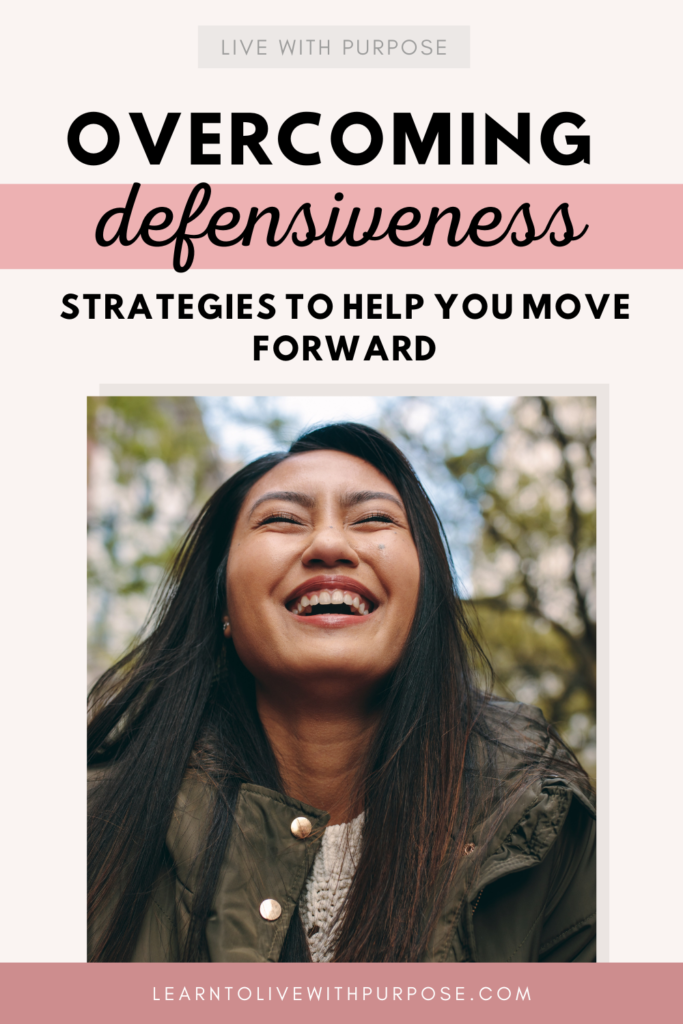
Related Blogs
Simple Ways to Practice Self-Care
Self-Confidence is one of the most important qualities that you can possess in life.
It’s essential for achieving success in any area of your life, from career to relationships and all the other core areas.
Unfortunately, many people lack the confidence needed to reach their goals. Fortunately, with the right knowledge and strategies, anyone can learn to build self-confidence and unleash their true potential.
Including you. 🙂
Here are seven tips for building self-confidence.
Building Self-Confidence
Self-confidence is a quality that everyone should strive for. It’s the key to unlocking your true potential and achieving success in life.
Unfortunately, many people struggle with low self-esteem, which can significantly impact their ability to reach their goals and navigate everyday life. 😔
Low self-confidence can lead to unhealthy habits, negative thinking, and missed opportunities.
Fortunately, with the right strategies and knowledge, anyone can learn to build self-confidence and reach their full potential.
Self-confidence is the belief in oneself and one’s abilities. It is the feeling of trust and security that comes from knowing that you are capable of achieving what you set out to do. 😄
People with high levels of self-confidence feel more empowered to take risks and make decisions even when it frightens them.
They also tend to be more successful in their endeavors and feel happier overall.
On the other hand, low self-confidence can lead to feelings of insecurity, fear, and doubt. 🙃
When someone has low self-confidence, they may feel as if they are not good enough or that they don’t measure up to others. This can lead to feelings of inadequacy and even depression.

GRAB YOURSELF OUR FREE SELF-CARE BUNDLE!
It’s time to take some time out for yourself love! Check out this four-page bundle of self-care goodness that you can use to relax, refresh and rejuvenate. You deserve it sis.
Pop your info in and download your bundle now ❤️
Understand Your True Potential
The first step to building self-confidence is to understand your true potential.
Many people limit themselves because they don’t realise their potential. Sometimes it’s internal factors, external or both that can influence what you believe about yourself. 🤔
It’s important to understand that you have the capacity to achieve anything you set your mind to. If you remind yourself of that every time you want to try something new or come out of your comfort zone you’d be amazed at what you can achieve. 😊
Once you understand your own potential, you’ll be able to set achievable goals and take steps to reach them. This will give you the confidence you need to move forward toward your dreams.
Benefits of having high self-confidence
Having high self-confidence can provide numerous benefits. It can improve your physical and mental health, increase your productivity, and help you develop healthier relationships. 🙂
It can also help you stay inspired and focused on achieving your goals.
With high levels of self-confidence, you are more likely to take risks, try new things, and follow your dreams. 💭
You won’t be afraid to put yourself out there and take on new challenges. You will also be less likely to be affected by the opinions of others and more likely to trust in yourself and your own decisions.
Sounds like an ideal life to me! 🤷♀️

Develop a Positive Mindset
Once you understand your true potential, it’s time to develop a positive mindset.
Negative thinking can lead to low self-confidence and stop you from living a life that you deserve. Instead of focusing on the things you can’t do, focus on the things you can do. Especially things that you do very well. 😅
A positive mindset will give you the confidence to take risks and try new things.
Practice Self-Compassion
Self-compassion is an essential part of building self-confidence. Many people are too hard on themselves, which can lead to low self-esteem and a lack of confidence. 🙁
It’s important to recognise that mistakes are part of the learning process and to be kind to yourself and not obsess over things you can’t control.
Instead of focusing on your shortcomings, focus on your strengths and acknowledge your successes. This will give you the confidence you need to keep moving forward. ➡️

Develop Healthy Habits
The next step to building self-confidence is to develop healthy habits.
Healthy habits can help you stay disciplined, focused, motivated, and productive which are all essential for reaching your goals.
Developing healthy habits like exercise, healthy eating, getting 7-9 hours of sleep and keeping up with good hygiene can help you feel better both physically and mentally. 🧠
This will give you the energy and confidence to take on any challenge.
Instead of blaming others or making excuses, acknowledge your mistakes and take responsibility for them. This will help you learn from your mistakes and make improvements in the future.
When you take responsibility for your actions, you are also more likely to follow through on things. You will be more likely to stick with a task until it is completed, rather than giving up when things get tough.
This will help you build self-confidence and trust in yourself. Because you’re telling yourself that no matter what happens, I’m going to go after what I want. 😌
One of the best ways to boost your self-confidence is to set realistic goals for yourself. Make sure that your goals are achievable so that you can see progress and feel a sense of accomplishment.
You can also break down large projects into smaller, manageable tasks so that you don’t become overwhelmed. 🤯
The key is to stay focused. Visualise your goals and remind yourself why you are working towards them. Whenever you feel discouraged, take a few moments to reflect on how far you have come and how much you have accomplished.
Challenge Yourself
In order to build self-confidence, it’s important to challenge yourself by pushing your boundaries. 👀
Don’t be afraid to take risks and try new things. This will help you grow and develop as a person. It will also give you a sense of accomplishment and pride, which can boost your confidence.
So don’t be afraid to step out of your comfort zone and try something new. 🤗
By taking care of yourself, you will be more likely to feel energized and motivated. You will also be better able to focus on your goals and take on new challenges. Taking care of yourself is an important step in building self-confidence.
RELATED: Getting out of your comfort zone mini-course
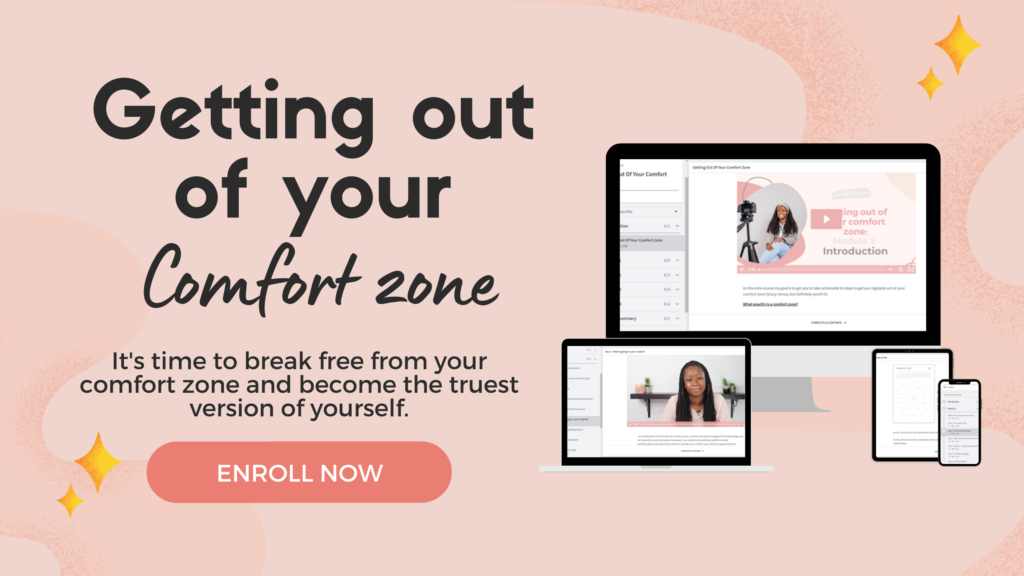
Surround Yourself with Positive People
Surrounding yourself with positive people can also help you build self-confidence. 👨👩👧
Positive people will provide you with the support and encouragement you need.
They will also help you stay focused, motivated and disciplined. So make sure to spend time with people who will help lift you up and make you feel confident about yourself, nothing less.
Try to limit your interactions with negative people and focus on spending time with those who will encourage you to be the best version of yourself. 😌
Celebrate Your Achievements
Finally, it’s important to celebrate your achievements, no matter how small.
Success is an important part of building self-confidence. So take some time to recognise and celebrate your successes and accomplishments.
This will give you the confidence to go after what you want. 👈
Celebrating your successes is an important part of building self-confidence. It helps to remind you that you are capable and that you are making progress in your life.
Progress = Happiness ❤️
Take some time to reflect on your successes and give yourself credit. You can also reward yourself with something special when you reach a goal or complete a task. Recognising your successes will help to boost your self-confidence and keep you motivated to venture onto other tasks.

Building Self-confidence – Conclusion
Building self-confidence is essential for achieving success in any area of your life. It’s not always easy, but with the right knowledge and strategies, anyone can learn to build self-confidence. 🤗
The seven tips outlined in this article will help you understand your true potential, develop a positive mindset, practice self-compassion, develop healthy habits, challenge yourself, surround yourself with positive people, and celebrate your achievements.
By following these tips, you can build your self-confidence unlock your true potential, and reach your goals. 🙌
Pin this post for a reminder 📌 👇

Related Blogs
The Top 10 Ways to Improve Your Productivity
Everyone has days when they feel like they’re doing really well and days when they don’t feel that way at all.
Sometimes the negative thoughts of you not doing well in life can come from witnessing milestones achieved by friends and family or a big birthday is coming up and you don’t understand where all the time has gone because you’re nowhere near completing the goals you gave yourself ages ago. 😔
It can be difficult to tell the difference between feeling good about where you are and actually doing well in life. That’s why it’s important to take a step back and reflect on the different aspects of your life to determine if you’re doing as well as you think. 🤔
Here are 10 encouraging signs that you’re doing well in life.
1. You Have a Strong Support System
Having a strong support system is one of the most important factors for a happy and successful life. Having a support system of family and friends who are there for you in times of need can make all the difference. 🥰
It’s also important to have people in your life who can offer advice and support when needed. Knowing that you have people who have your back can give you a sense of security and well-being.
Having a support system also means that you have people who you can turn to when times get tough. Knowing that you have someone to rely on can make all the difference in how you handle difficult situations.
Being able to talk to someone about your problems can often provide you with a different perspective and give you the motivation to keep going. 🙂
If you have a strong support system you are very fortunate, never forget that.

2. You Have a Sense of Self-Confidence
Self-confidence is an important factor in doing well in life. It’s important to be confident in yourself and your abilities.
When you have a positive belief in yourself, it can help you to push through difficult times and help you make the right decisions. 👊
Knowing that you have the skills and abilities to tackle any challenge can give you the courage to take on any task.
It’s also important to have a sense of self-worth. Being able to recognize your own value and worth can give you the motivation to strive for your version of success.
It’s also important to celebrate your achievements and recognise your accomplishments. Having a healthy sense of self-confidence can help you to be resilient in the face of adversity and make the most of every situation. 😄
3. You Have Good Mental Health
Good mental health is essential for doing well in life. It’s important to take care of your mental health and make sure that you are in a good place mentally. 🧠
Paying attention to your mental health can help you to cope with difficult situations and make better decisions.
It’s also important to make sure that you are getting enough rest, relaxation and alone time. 🛀
Rest, relaxation and alone time can help to reduce stress and give you a better outlook on life. Taking time for yourself to relax and recharge is essential for good mental health.
It’s also important to practice self-care and make sure that you are taking care of your physical and mental health.

4. You Have Goals and Dreams
Having goals and dreams is essential for doing well in life. Setting goals and having dreams can help to motivate and inspire you to keep going, even if things around you are falling apart. 😬
It’s also important to break down your goals into smaller, achievable steps. Breaking down your goals can make them seem more manageable and give you a sense of accomplishment when you reach each step.
Having a plan and a timeline helps you to keep on track and focused on achieving your goals.
RELATED: The How to set goals and achieve them mini-course
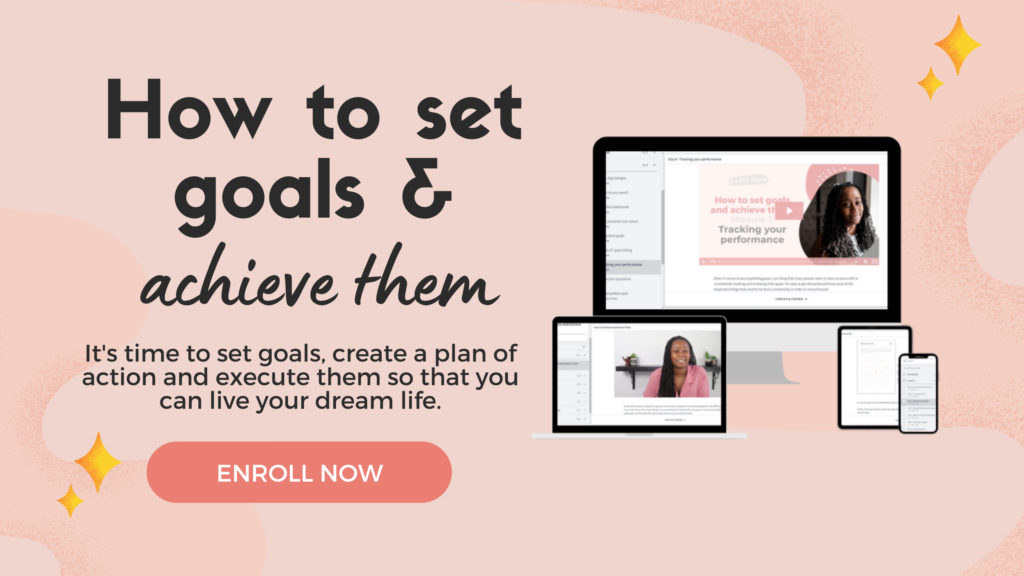
5. You Take Care of Your Body
Taking care of your body is an important part of your overall well-being. Taking care of your physical health can help to improve your mental health and make you feel better overall, making life that much better. 💪
Making sure that you are eating a healthy diet, getting enough exercise, and getting enough sleep are all essential for good physical and mental health.
Taking time to practice self-care and relaxation can help to reduce stress and make you feel better overall.
If you have access to things that make taking care of your body even easier ( gym membership, ability to cook fresh health meals) then good on you! 🥗
6. You Have a Positive Attitude
Having a positive attitude is essential for doing well in life. Having a positive outlook on life can help to keep you driven and inspired to keep going.
It’s also important to focus on the good things in life and not get bogged down by the negative. Being able to look for the silver lining in every situation can help to keep you in a positive frame of mind. 💭
It’s also important to practice gratitude and to be thankful for what you have. Being thankful for the good things in life can help to improve your outlook and make you feel more content.
As well as being able to practice self-compassion and to be kind to yourself. Taking time to recognise your own worth and value can help to boost your self-confidence and make you feel better overall. 😁

7. You Are Grateful for What You Have
Gratitude is an important factor in doing well in life. It’s important to be thankful for what you have and to recognise the good things in life that you may take for granted.
Taking time to appreciate the people in your life and the things that you have can help to boost your mood and make you feel better overall. 😌
It’s also important to practice gratitude for yourself and to be thankful for your own efforts and accomplishments.
Being able to recognise your own worth and value can help to boost your self-confidence and give you a better outlook on life.
Practicing gratitude can also help to reduce stress and make you feel more content. 😮💨
8. You Are Making Progress
Making progress is an important factor in doing well in life. It’s important to be able to realise that you are making progress and to celebrate small victories along the way.
Taking time to recognize your accomplishments and progress can help to motivate and inspire you to keep going.
It’s also important to recognize that progress takes time and that it’s not always a linear process. 📈
Taking time to reflect on the progress that you have made can help to give you a sense of accomplishment and make you feel better overall.
Remember to be patient and not to give up if you don’t see immediate results. Your time is coming sooner than you realise. 🙂
RELATED: What does success mean to you? Take our quiz here
9. You Are Making Connections
Knowing how to make connections is an important factor for doing well in life. Having a strong network of people who you can connect with can help to make life more enjoyable. 🌞
Having people who you can talk to and share experiences with can help make life more meaningful.
Making meaningful connections with people can help to make life more to ones liking and can give you a sense of purpose.
Taking time to get to know people and form strong relationships can help to improve your overall mood and make you feel better. 🤗
You can make more connections by networking through LinkedIn or utalising your friends networks. This will be especially useful if you’re looking for connections in regards to your career/business.

10. You Have a Positive Impact on Others
Having a positive impact on others is a great sign that you’re doing well in life. Being a positive influence on those around you can help to make life more enjoyable. 🤭
Taking time to help and support others can give you a sense of purpose and make you feel better overall.
It’s also important to aknowledge the positive impact that you have on others. Taking time to recognise the ways that you have helped and supported others can help to boost your self-confidence and make you feel better about yourself and your contributions.
Being able to realise the good that you do can help to make life more meaningful and give you a sense of accomplishment. 🏆
To Sum It Up
Doing well in life is not always easy and it’s important to take the time to reflect on different aspects of your life to determine if you’re doing as well as you think.
There are many encouraging signs that you’re doing well in life, from having a support system to having a positive attitude. 🥰
Taking time to recognise the good things in life can help to improve your overall well-being and make life more enjoyable.
Making sure that you are taking care of your physical and mental health and striving for progress can help to ensure that you’re doing well in life.
You’ve got this. ❤️
Pin this post for a reminder 📌 👇
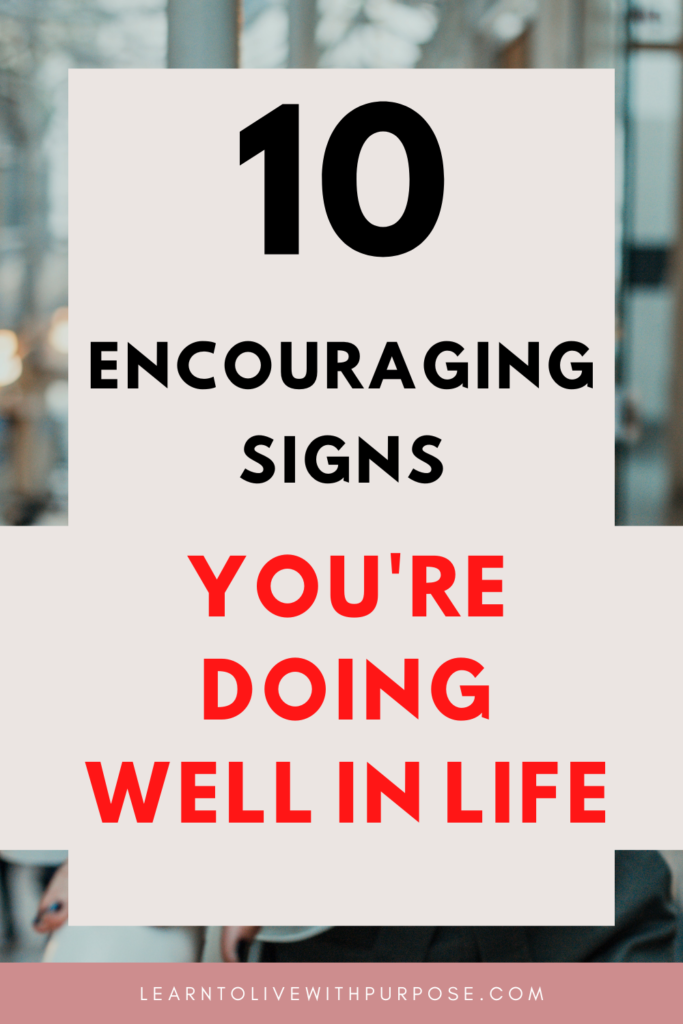
Related Blogs
What is Self-Efficacy & Why is it Important
Why Intentional Living is The Best Thing You Can Do For Yourself
Everyone feels pressured from time to time, especially if you’re a perfectionist like myself. Sometimes, it’s the pressure that you place on yourself, expecting the best of yourself and your abilities. Making overcoming perfectionism a mammoth task.
Other times, it’s external pressures that lead you to feel anxious and stressed out. If you feel like you are under pressure all the time, it might be time to look at whether there are any external forces compounding your inner battle with your own self-doubt. 😔
You see, feeling pressured becomes a vicious cycle: anything that stresses you out or causes you anxiety feeds into your insecurities, which makes you feel even more anxious and insecure about everything. Everything needs to be “perfect”.
So not only are you feeling pressure from outside factors but also from within yourself. Even if a certain situation doesn’t seem threatening, it can build up over time and have an unhealthy effect on how you handle things.
Eeeeek! 😬
Here are 6 ways to stop feeling pressured so that you can help you with overcoming perfectionism. 👇
Recognise The Signs Of Perfectionism
Before you can consciously try to overcome perfectionism, you have to recognizse it in the first place.
Here are a few red flags to watch out for:
💭 You feel anxious when you’re around certain people or in certain situations.
💭 You’re always analyzing your own life.
💭 You have a hard time relaxing.
💭 You’re always trying to make something the absolute best it possibly could be – “being perfect”.
When you notice any of these signs, it’s important to take a step back and recognise what’s going on.
You might be feeling pressured because of external factors, like family expectations or work pressures. On the other hand, you might also be feeling pressured because you’ve internalised the idea that you have to be perfect.
Either way you’re likely in the process of figuring out how to navigate these feelings and come to terms with your own insecurities.

Find Strategies To Overcome Perfectionism
The truth is that most people who feel pressured all the time don’t know what to do differently. There’s nothing wrong with having high standard for yourself, but if your standards get in the way of you progressing with your life then you’ve got an issue. 🤷♀️
If you want to start overcoming your fears of feeling pressured, the first thing you need to do is start taking steps toward self-compassion.
This might sound super vague but it’s actually one of the most important things you can do to start overcoming perfectionism.
Self-compassion is about treating yourself with the same kindness and understanding that you would treat a close friend. 🥰
It’s about learning to recognise that you’re not alone in this world and that everyone struggles with their own insecurities. When you stop shaming yourself for your struggles and start putting more love and kindness towards yourself, you’ll feel less anxious and less pressured to succeed.

GRAB YOURSELF OUR FREE SELF-CARE BUNDLE!
It’s time to take some time out for yourself love! Check out this four-page bundle of self-care goodness that you can use to relax, refresh and rejuvenate. You deserve it sis.
Pop your info in and download your bundle now ❤️
Stop Being So Hard On Yourself
You’re not a bad person. You’re not selfish. You’re not useless. You’re not the only person in the world who ever messes something up. Mistakes aren’t failures. 🙅♀️
They’re simply lessons to help you learn how to be a better person. Even the most successful people on the planet have made mistakes and screwed up. You’ve made mistakes. You’ve screwed up. It’s OK.
You’re not a failure if you have bad days or make mistakes. 🙂
You’re not a failure if you have doubts about yourself or if you feel like you’re not good enough. You’re human. You’re permitted to feel the way you feel. You’re permitted to make mistakes. You’re permitted to feel bad about yourself.
You’re doing your best and your best is all you can ever ask of yourself. ❤️
Talk To Others About Your Struggle
If you’re one of those people who’s feeling pressure but doesn’t know how to stop, one place you can start is by talking to someone about your struggles.
There’s a lot of shame that comes along with admitting that you struggle and talking to a friend about it can help you feel less alone. 🤗
If you don’t have a friend who you can talk to, there are tons of online platforms where you can anonymously chat with people who are facing the same issues that you are.
There are groups like The Mighty or Whisper that allow people to talk about whatever they want, whether that’s anxiety or anything else. 😌
You don’t have to go through life silently struggling with your own insecurities. There are tons of people who are willing to lend support and help you feel less alone.

Practice Gratitude
When you are a perfectionist there are a lot of negative ideas floating around about how you should feel and what you should be doing.
It’s important to remember that you don’t have to be perfect. You don’t have to be the best at everything you do. You don’t have to be the most important person in the world.
In fact, you don’t have to do anything at all. You only have to be you. You only have to do what you can do. 🤷♀️
You can choose to be positive about how you feel and what you’re doing. You can choose to be grateful for the things that you have. You can choose to be generous with your time and energy. You can choose to make mistakes and learn from them.
You can choose to accept yourself as you are. 🥰
Exercise Can Help
When you’re feeling pressured all the time, it’s easy to start looking for ways to relieve that stress.
You might start to notice, for example, that a certain music genre makes you feel better, or you might start looking for little ways to relieve your anxiety.😮💨
Some of the best ways to relieve pressure while maintaining a healthy lifestyle are to exercise and meditate.
Physical activity is known to help with anxiety and depression, and there are tons of studies that show how important it is to maintain a healthy lifestyle, no matter how old you are. 👵
Studies also show that regular meditation can help alleviate many of the negative effects that come with overcoming perfectionsm, including stress, worry, and feelings of inadequacy.
No matter what you choose to do, make sure that you still take care of yourself.
RELATED: Make this year the year you make and keep your health a priority! Check out our Health Bundle
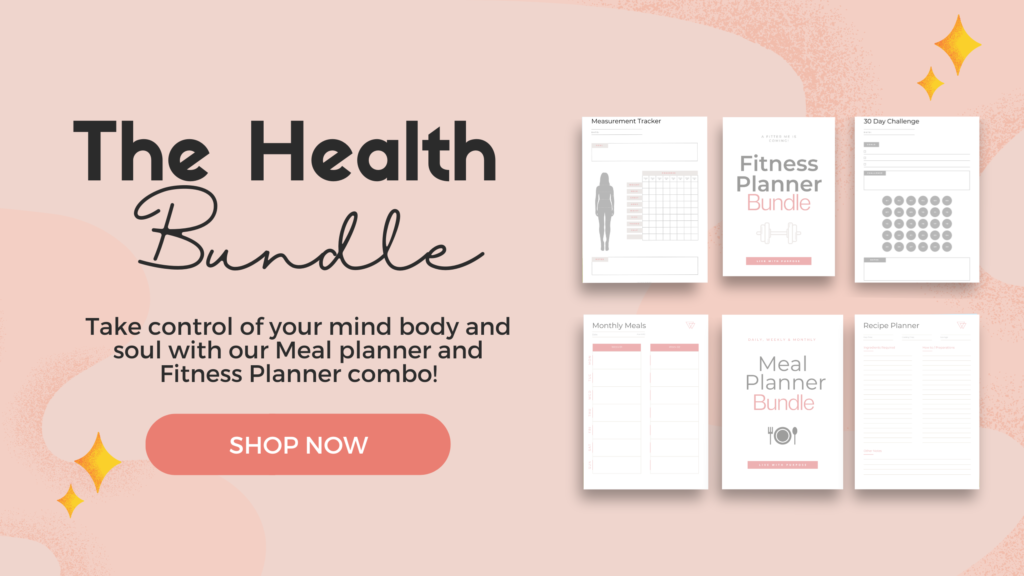
Overcoming Perfectionism – To Sum It Up
Feeling pressured to be perfect is a very common feeling among students and high achievers. While it can come from external factors, it can also come from a place of insecurity within you.
The best way to deal with it is to first recognize it and then, secondly, to find strategies to overcome it. 🙂
Above all, remember that you aren’t a failure and that you’re permitted to make mistakes. Overcoming perfectionism isn’t easy but its possible. Learn from your mistakes and move on. You’re human after all. 💕
Pin this post for a reminder 📌 👇
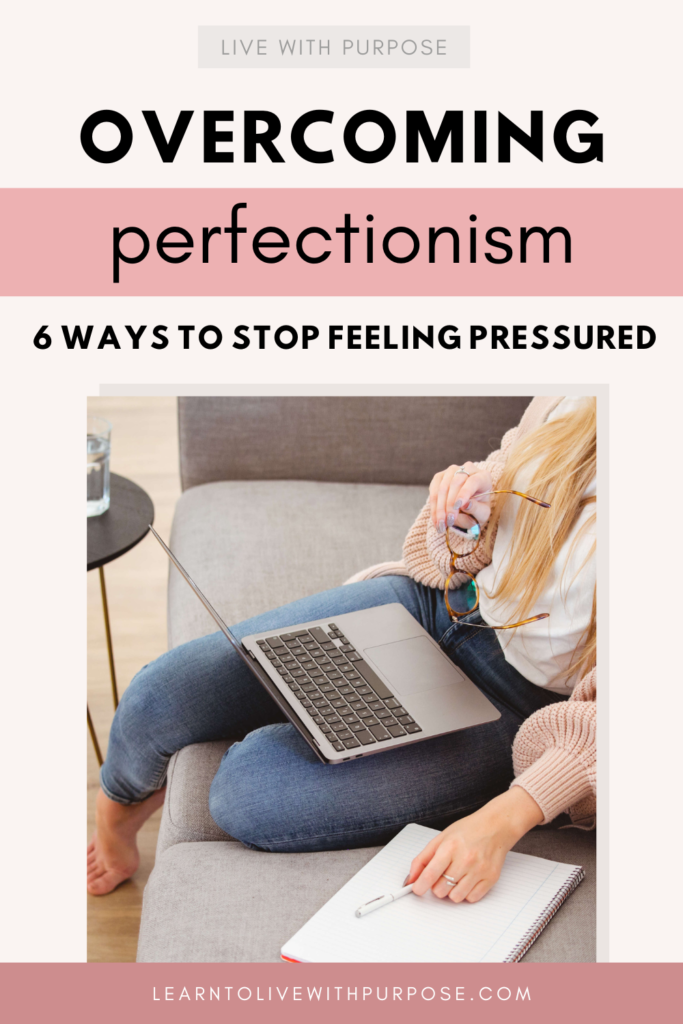
Related Blogs
The Top 10 Daily Habits of Successful People
Why Intentional Living is The Best Thing You Can Do For Yourself
How to Become the Best Version of Yourself: A Guide For 20-Somethings
Today, we’re all bombarded with a constant stream of information and sensory stimulation. Many people struggle to keep up with it all and internalise the right amount of information. 🥲
The result is often an abundance of automatic negative thoughts (ANTs). These are unhelpful mental reactions to events that produce a feeling of distress and pessimism.
As much as you can, try not to let them get the better of you.
But how do you keep your automatic negative thought under control? 🤔
Sometimes, we’re so busy trying to make our lives perfect that we forget about the small things that make our lives more meaningful along the way.
When we forget to look at the bigger picture and focus on our inadequacies and what’s going wrong in our lives that’s when things start to spiral. 🙃
Then there are those moments when we start thinking negatively about things that aren’t even bothering us anymore – automatic negative thoughts in their purest form.
Here’s what you need to know about these types of thought, and how to get rid of them for good.
What are Automatic Negative Thoughts?
Thinking is an active process. It happens in your head, and it’s shaped by the information you receive.
Automatic negative thoughts are unhelpful thoughts that pop into your head unconsciously. 😒
These thoughts often result from a situation that made you feel anxious. ANTs may be triggered by perceived social inadequacies or by a moment of self-criticism.
They often go something like this: “You’re stupid for not knowing that. You’ve never done anything worthwhile. You’ll always be a loser.”
They’re negative, critical thoughts you have about yourself that are based on nothing but assumptions. 🤷♀️
Criticism that isn’t constructive doesn’t help you grow or improve. It’s just another way to distract yourself from the real issues.

How to Get Rid of Automatic Negative Thoughts
The first thing to know about ANTS is that they’re completely within your control.
This might sound crazy, but it’s true. If you want to get rid of ANTs, you’ll need to use the same techniques you would to overcome any other fear.
In other words, you need to face your anxiety head-on. Scary, I know. But doable. 🙂
Let’s take a look at some of these techniques, and how you can use them to get rid of your ANTs.
✨ Accept that you’re feeling anxious
Stop for a moment and acknowledge how you’re feeling. If you’re with a friend, explain why you’re feeling anxious. This will help you connect with your feelings, and you’ll see them for what they are. Alternatively, you can write your thoughts and feelings in a journal.
✨ Befriend your anxiety
Accept that it’s not dangerous or toxic, just anxiousness. You don’t need to be ashamed of it or avoid it.
✨ Look for logical explanations for your anxiety
Once you’ve calmed yourself down and accepted your feelings, take a step back and ask yourself what you were thinking. What thought triggered your anxiety? Was it something in the past, present or future?
✨ Practice mindfulness
Mindfulness is the ability to focus on the present moment. When you’re feeling anxious, this is exactly what you need to do. It’s a way of calmly and rationally evaluating your thoughts and feelings.
Want to learn more about mindfulness? Click here 👉 The Keys to Self-Mastery
✨ Find a way to release the stress
When you’re feeling stressed, the last thing you want to do is hold onto it. Instead of making your anxiety worse, find a way to release it. You can do this by doing something calming, like taking a walk or meditating.
Strategies to Overcome ANTs
Now you know a couple of ways on how to get rid of your automatic negative thoughts, you need to learn how to replace them with more helpful ones.
ANTS are super sticky, so it might take some time to completely get rid of them. Don’t be discouraged though,It gets better with practice. 🙂
Keep in mind, too, that it’s often helpful to identify your triggers. If you know that a certain type of person triggers ANTs in you, you can avoid them in advance.
The first thing to remember is that the way you think affects the outcome of your life. It’s worth remembering this fact because it might seem like a simple concept, but it’s not a concept that’s widely used to navigate life.
After all, we’ve been telling ourselves this for years. The truth is that the way you think about things determines how you feel about them. You have the power to change your feelings. 👈
It’s also important to practice self-compassion. Instead of beating yourself up for having negative thoughts, try to be kind and understanding.
Remind yourself that everyone has negative thoughts from time to time and it’s okay. It takes time and practice, but if you work hard, you can start to change your automatic negative thoughts.

How to Push Away ANTs That Are Holding You Back
Here are a few ideas for how to push away ANTs that are holding you back.
If you have any other strategies, feel free to add them in the comments section.
👉 Journaling
When you journal, you take the power out of your thoughts and put it back where it belongs – in your control. You have the ability to choose how you’re going to feel, and journaling gives you that power back.
👉 Post-its
Post-its have been used to overcome many forms of anxiety, and they work just as well for ANTs as they do for any other type of fear. Put a few up around your room, and stick them on your mirror if you need to remind yourself to push them away.
👉 Distracting yourself
ANTs and anxiety often revolve around your thoughts and feelings about things that happened in the past. To push them away, focus on the things in the present that are worth focusing on.
👉 Guided imagery
It’s designed to bring your attention back to the present moment, so it’s a great way to push away your ANTs. Look around you and focus on he objects that you are observing.
Conclusion
Automatic negative thoughts can be a real drag on our mental health, but there are things we can do to fight back against them. 👊
The first step is to become aware of when these negative thoughts arise. We can then pause and take a step back, and try to come up with a more positive thought.
It’s also important to challenge any negative thoughts that come up. Ask yourself if your thoughts are really realistic, and make an effort to replace them with more positive, realistic ones.
Finally, practice self-care. Whether it’s going for a walk, taking a break, talking to a friend, or doing something creative, it’s important to fill your life with joyful activities that can help counteract the effects of negative thinking.
With a little bit of effort, we can all learn to break the cycle of negative thinking and live a healthier and more fulfilling life. 😄
Pin this post for a reminder 📌 👇

Related Blogs
Letting Things Go: It’s Easier Than You Think
How to Get Your Life Back On Track When You’re Tired & Bored
Did you know that people on my email list sometimes get exclusive discounts on my products? Join the community and save yourself some coins!
Freshly-squeezed inspiration, and no-nonsense tips + tricks to improve your life delivered to your inbox weekly.
Subscribe to my newsletter
Subscribe
You're all signed up!
Be sure to whitelist our email address so that all the goodies make it to your inbox.





